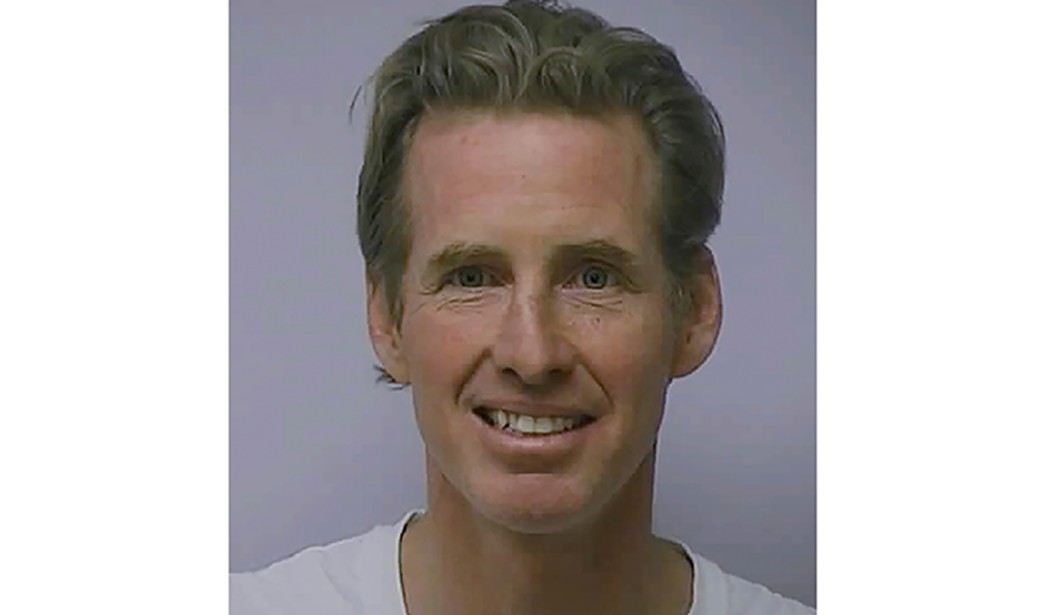We actually have two questions that require answers in the wake of Sunday's assassination attempt on Donald Trump by a (well-)"known wolf". The first question: Why didn't federal security and intel agencies take Ryan Wesley Routh seriously? He had a decades-long track record of criminal activity, and numerous people tried to warn the FBI, Homeland Security, and the State Department of his dangerous nature.
We may wait a long time for a satisfactory explanation for that question. Thanks to Tanya Lukyanova, however, we have a good answer to the second question: Why did American media outlets take Routh seriously? Lukyanova reported for Semafor a couple of years ago and interviewed Routh, and was hardly alone. Lots of news outlets -- and Lukyanova brings receipts -- treated Routh as a good source for their narratives on Ukraine, even while Routh himself clearly had some mental health and judgment issues:
Right around the time my story ran, The New York Times interviewed Routh for an article about American volunteers on the Ukrainian frontlines. Newsweek spoke to him, too. He reportedly met with elected officials on Capitol Hill, and had contacts inside Ukraine’s Defense Ministry. Journalists, activists, and policymakers saw him as a credible figure.
And that’s despite the fact that his criminal record was there for everyone to see. Journalists could have found it if they had thought to question his motives, or even his sanity. The guy moves to the capital of a nation at war, despite having no personal connection to it. He doesn’t speak Russian or Ukrainian. In retrospect, shouldn’t it have struck the reporters, including myself, as a little bit. . . odd?
The question is: Why didn’t it?
Lukyanova provides the honest, and frankly obvious answer, both for herself and others. They ignored all of the apparent issues with Routh because he allowed them to write the take they wanted in the first place. He was "the 'right' kind of crazy," Lukyanova admits, so no one in the media questioned his motives or his credibility.
And that has Lukyanova doing some very-much-needed introspection about the state of the media in general:
Over the past day I’ve been thinking a lot about what else—who else—gets the same kind of pass. These days, the right kind of crazy is there every time you turn on the TV, or scroll through your social media. “No ears were harmed. Carry on with your Sunday afternoon,” Rachel Vindman tweeted casually, referring to Trump’s previous assassination attempt a mere two months earlier. (She later deleted it.)
Last week, MSNBC watchers could tune into Elie Mystal declaring: “Trump supporters are just as despicable as he is,” with the show’s host Joy Reid nodding in agreement. Trump supporters, Mystal said, are “just as ungenerous and have just as little compassion and empathy for others.” It was just another night on cable news. The fact that statements like these generate so little outrage is a clear sign of how degraded our public discourse has become.
That's true to a point. The issue isn't the opinion shows on cable news; everyone expects those to have a point of view and preferred narratives. One might hope that those wouldn't be as bat**** crazy as Reid and Mystal, but much of that is just fan service. MSNBC caters to nuts on the Left, and one can argue that Fox's opinion shows do the same on the Right. Nor is the main problem located on social media, where everyone seems inclined to let their better natures take a powder as users vent spleens almost exclusively (with the exception of Wordle results, and so on).
No, the issue at hand that Lukyanova honestly and bravely confronts in this Free Press essay is on the reporting of news. Her examples above didn't come from opinion columns, but what were supposed to be factual reporting on Ukraine. And it points to a pernicious trend in purportedly fact-based reporting, which is that media outlets look for sources that will only confirm their own biases and preferred narratives. Once found, these 'journalists' won't bother looking gift horses in the mouth to ensure reliability and honest reporting.
Joy Ann Reid and Elie Mystal aren't really the problem. Rachel Vindman isn't either. This problem comes from the New York Times, Newsweek, and other "news" organizations that have replaced honest journalism with advocacy. They hide behind their selected sources, too often hidden behind otherwise-unnecessary anonymity to disguise their own advocacy, to manipulate audiences with news that may not be entirely fake, but is too often merely an unbalanced political argument favored by the establishment elite.
Lukyanova deserves credit for raising this issue at the Free Press, an outstanding independent voice in journalism these days. But the problem is deeper than she realizes.
Plus, the latest episode of The Ed Morrissey Show podcast is now up! Today's show features:
- For the second time in as many months, a gunman got within range of Donald Trump. The FBI considers this another assassination attempt, and that raises the same questions as the first.
- Andrew Malcolm and I discuss those ongoing failures, the reaction of the media, and what this says about our political environment.
- We also talk about Andrew's latest column on Kamala Harris, and I manage to squeeze in a joke at the end, too!
The Ed Morrissey Show is now a fully downloadable and streamable show at Spotify, Apple Podcasts, the TEMS Podcast YouTube channel, and on Rumble and our own in-house portal at the #TEMS page!









Join the conversation as a VIP Member